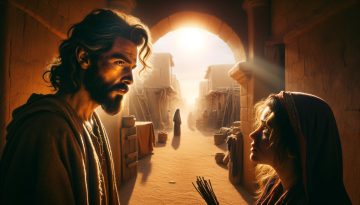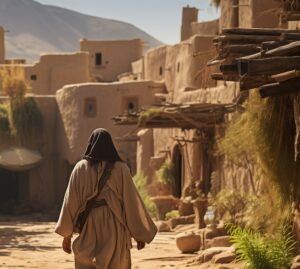Why Elijah Matters Beyond the Novel: One. A Brief Introduction
By Anthony Barbera 4-17-25
When I begin the journey to write a novel, which normally will take several years and thousands of hours, I ask myself: how does this matter to a reader? My brothers or sisters? How is it going to improve one’s spiritual life? Elijah stands apart in the long line of biblical prophets—not just for his miracles or defiance of kings but for the fierce intimacy he shared with Yahweh. He was a man who walked with the Almighty in a way that few ever have. He’s a master example to us. And at the end of his journey, he was taken—swept away by a chariot of fire. Not even Moses, the great lawgiver, received that honor. Moses had a brutal task. It lasted much longer than Elijah’s—but who got taken away in a chariot?
Why Elijah? What made him so beloved by the Creator?
It’s worth pausing on the moment in the cave at Mount Horeb. Elijah had fled from Jezebel, disheartened. The victory on Mount Carmel hadn’t rallied the people as he had hoped. Jezebel still lived, Ba’al still reigned, and Elijah felt utterly alone. And there, in the quiet, came the voice of Yahweh:
“Why are you here, Elijah?”
Not once, but again and again, God asked him this question. Not with anger. Not with judgment. But with tenderness—drawing Elijah out, letting him speak the burden of his heart:
“I’m the only one left. No one stands with me.”
It’s such a human moment. Here is a prophet who had just called down fire from heaven, yet he now trembles in fear and loneliness. And God listens. Patiently. Lovingly.
This is part of what makes Elijah a powerful figure to us even today. He was bold and brave, yes—but also harried with fear at times. He stood alone on Mount Carmel, thousands of Israelites traveling to see the showdown, and many were not fans. The old religion was fading. Every god was welcomed now, and the land was drowning in idolatry and witchcraft. The 450 prophets of Ba’al parading up to the front, and King Ahab watching it all, hoping Elijah would fail, finally removed for good. He reminds us that faith doesn’t mean fearlessness and that even the faithful need reassurance.
When I think of Elijah, I think of a man beloved by God—not for being invincible, but for being real. For answering the call. For standing firm on Mount Carmel yet showing up trembling in a cave.
That’s why he matters. That’s why he still speaks to us.
With Affectionate Regards,
Anthony Barbera




